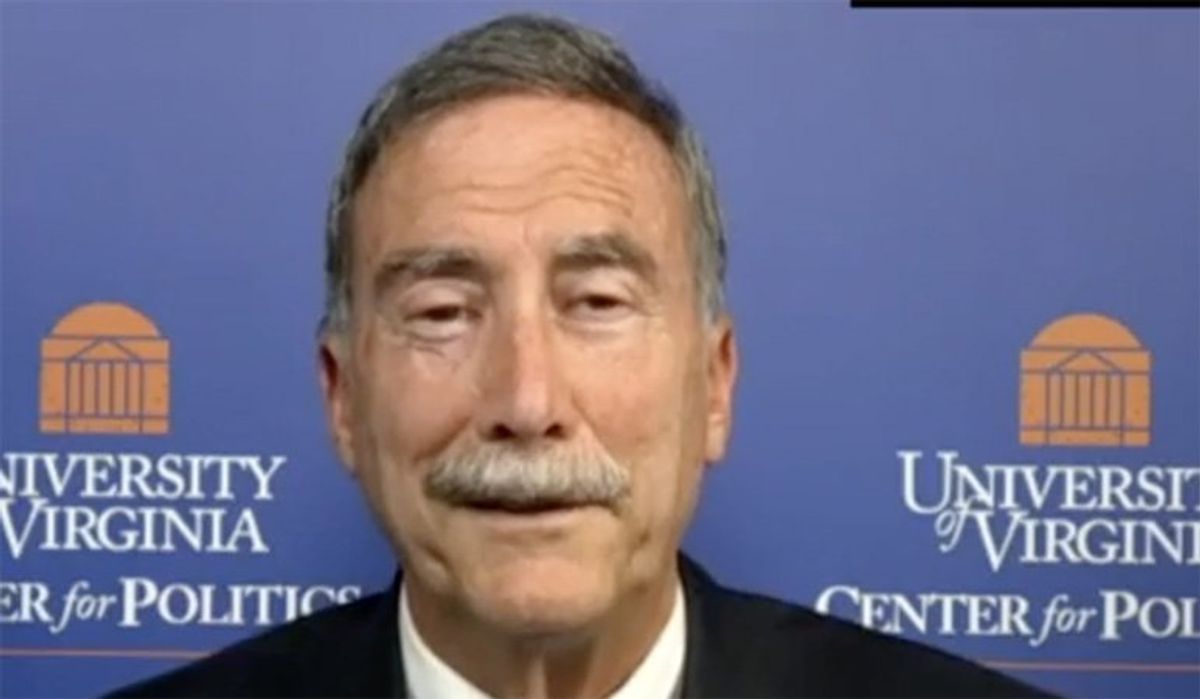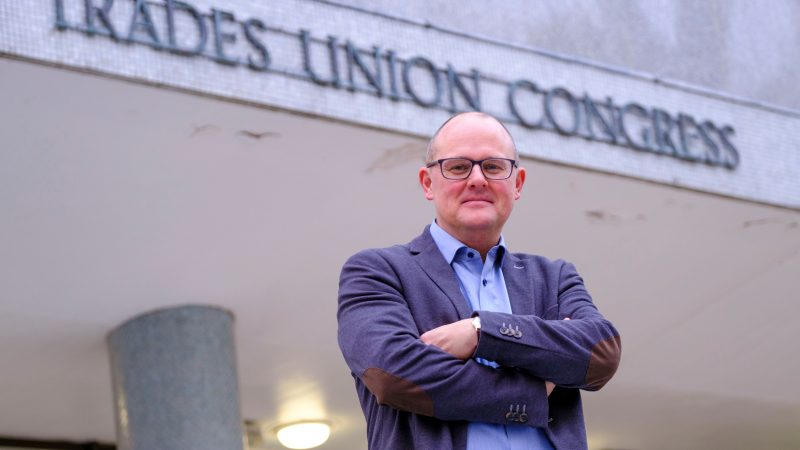Alexandria Jacobson, Investigative Reporter
October 21, 2024

Senator Rick Scott speaks during CPAC Texas 2022 conference. (Shutterstock.com)
This article was paid for by Raw Story subscribers.
From Florida to Washington, D.C., Sen. Rick Scott (R-FL) has expressed a similar refrain at his recent speaking engagements: Democrats are encouraging illegal immigrants to fraudulently vote in elections.
That’s despite little to no evidence supporting the claim — it’s rare (and already illegal) for non-citizens to vote in U.S. elections, which has been proven by multiple studies.
The Bipartisan Policy Center analyzed an Election Fraud Cases database from conservative think tank, The Heritage Foundation, and found just 77 instances of non-citizens voting between 1999 and 2023.
A study from the Brennan Center for Justice analyzed 23.5 million votes across 42 jurisdictions in the 2016 general election and found approximately 30 instances of non-citizens voting — 0.0001 percent of all votes cast.
Spreading fear around immigrants and people of color replacing white Americans, particularly as a means for Democrats to win elections through demographic change, is a tenant of “great replacement theory, a racist ideology that has been cited as motivation of mass killers, as with the racially motivated Buffalo, N.Y., supermarket shooting, and white supremacists, such as those who chanted “Jews will not replace” us at the 2017 “Unite the Right” valley in Charlottesville, Va.
Florida’s population is about 21.5 million people, according to the 2020 U.S. Census. Nearly 5.7 million Florida residents identify as Hispanic or Latino, and about 12.4 million people identify as white.
Scott has been ramping up his election denialism language ahead of next month's general election as he did in 2018, accusing his opponent of election fraud, and in 2020 when he was one of 147 Republicans who voted to overturn the election results.
Will Hampson, a campaign spokesperson for Scott, did not confirm to Axios if Scott would accept the outcome of the November election.
"Sen. Scott has always said his goal is 100 percent voter participation and 0 percent fraud," Hampson told Axios.
Scott’s congressional office and campaign did not respond to Raw Story’s request for comment.
Scott began serving as a U.S Senator in January 2019 after serving two terms as the governor of Florida. He is running for reelection against Democratic former Rep. Debbie Mucarsel-Powell, whom he is leading by 2 points, according to The Hill.
Raw Story compiled six recent examples of times when Scott spread fears about illegal immigrants voting in U.S. elections.
‘They like the idea of people coming here illegally so they can vote’
Scott wrote an op-ed in the conservative news outlet, the Washington Examiner, on Sept. 10 titled, “The SAVE Act is essential in preventing illegal immigrants from voting and protecting integrity of US elections.”
“The Democrats in charge of Washington, D.C., have presided over massive failures while in office, and they have nothing else to run on, so it is only logical to assume they like the idea of people coming here illegally so they can vote in our elections and help Democrats win,” Scott wrote.
The SAVE Act, introduced by Scott and Sen. Mike Lee (R-UT), calls for proof of citizenship to vote and the removal of non-citizens from voting rolls. States determine their voter registration laws, but most require a driver’s license or a state ID when first registering to vote. Voters must be U.S. citizens age 18 or older by election day.
“We need to mandate citizenship verification because we cannot risk allowing the non-citizens Harris has illegally let into our country to vote in our elections,” Scott continued in the op-ed.
‘They’re happy with illegals voting’
Scott spoke at a Women’s Republican Club of Naples Federated Luncheon on Sept. 13 where he spread the idea that Democrats are encouraging illegal immigrants to vote.
“So, we have a simple bill. But guess what, they're gonna block it. Because guess what? They're happy with illegals voting because they think they're gonna vote for them,” Scott said on Sept. 13 at the luncheon.
Voter identification laws, such as those proposed in the SAVE Act, raise potential concerns about how they disproportionately affect the elderly, minority and low-income individuals given that obtaining identification can be costly and burdensome, ProPublica reported. Rural citizens may struggle to reach ID offices as well.
As many as 11 percent of eligible voters may not have necessary identification, according to the Brennan Center for Justice.
On Sept. 11, Scott, alongside Sens. Lee, Roger Marshall (R-KS) Ron Johnson (R-WI) and Tommy Tuberville (R-AL), called for adding to the stopgap government funding bill the SAVE Act’s proof-of-citizenship measure to vote in federal elections, the Louisiana Illuminator reported.
“[Vice President Kamala] Harris, [Senate Majority Leader Chuck] Schumer, Democrats, they intentionally opned the border and allowed people to come here illegally so they get to vote in our elections. They think that's going to help them win,” Scott said at a Senate press conference on the SAVE Act on Sept. 11.
‘They want all these illegals … to vote in the November election’
In a FOX Business interview on Sept. 13, Scott said, “The SAVE Act just basically says to register to vote in this country, you have to prove you're a citizen. Pretty basic."
"So when the Democrats say they will not pass a continuing resolution if that's in it, what they're saying is they want all these illegals that they brought in across the border over the last three and a half years to vote in the November election," Scott continued. That's exactly what they're saying.”
Congress ultimately voted to pass a temporary stopgap government funding bill, which President Joe Biden signed on Sept. 26.
‘They'll just let every illegal immigrant vote’
Scott headlined the Republican Party of Sarasota County Candidates Rally on July 27 at Robarts Arena, an event attended by hundreds, Tampa Bay-area TV station WFLA-TV reported.
“They won't have to commit fraud on elections because they'll just let every illegal immigrant vote,” Scott said.
‘Imagine what would happen if Democrats allow them to take over our elections?!’
Republican presidential nominee former President Donald Trump and his running mate, Sen. J.D. Vance (R-OH), spread baseless rumors about Haitian immigrants in Springfield, Ohio, eating local pets and fowl, which Scott perpetuated.
"We’ve seen disturbing reports of what’s happening in Springfield, Ohio, where the Biden-Harris admin has allowed 20,000 illegal immigrants to take over the small town. Imagine what would happen if Democrats allow them to take over our elections?!” Scott posted on X on Sept. 9.
“ENOUGH IS ENOUGH. The fix is obvious: Secure the border. Pass the SAVE Act,” Scott continued. “Will Democrats get on board?”
Haitian immigrants in Springfield are in the United States legally with temporary protected status, according to Al-Jazeera.
Raw Story visited Springfield amid the rumors and found no evidence of the unsubstantiated rumors. Vance still spread the rumors despite being informed they were false by city officials, the Wall Street Journal reported.












